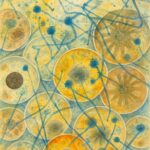Lien vers Pubmed [PMID] – 29292078
Neuroscience 2017 Dec;
In this review we discuss the possibility that the phenomenon of microglial priming can be explained by the mechanisms that underlie trained immunity. The latter involves the enhancement of inflammatory responses by epigenetic mechanisms that are mobilized after first exposure to an inflammatory stimulus. These mechanisms include long-lasting histone modifications, including H3K4me1 deposition at latent enhancer regions. Although such changes may be beneficial in peripheral infectious disease, in the context of microglial priming they may drive increased microglia reactivity that is damaging in diseases of brain aging.

